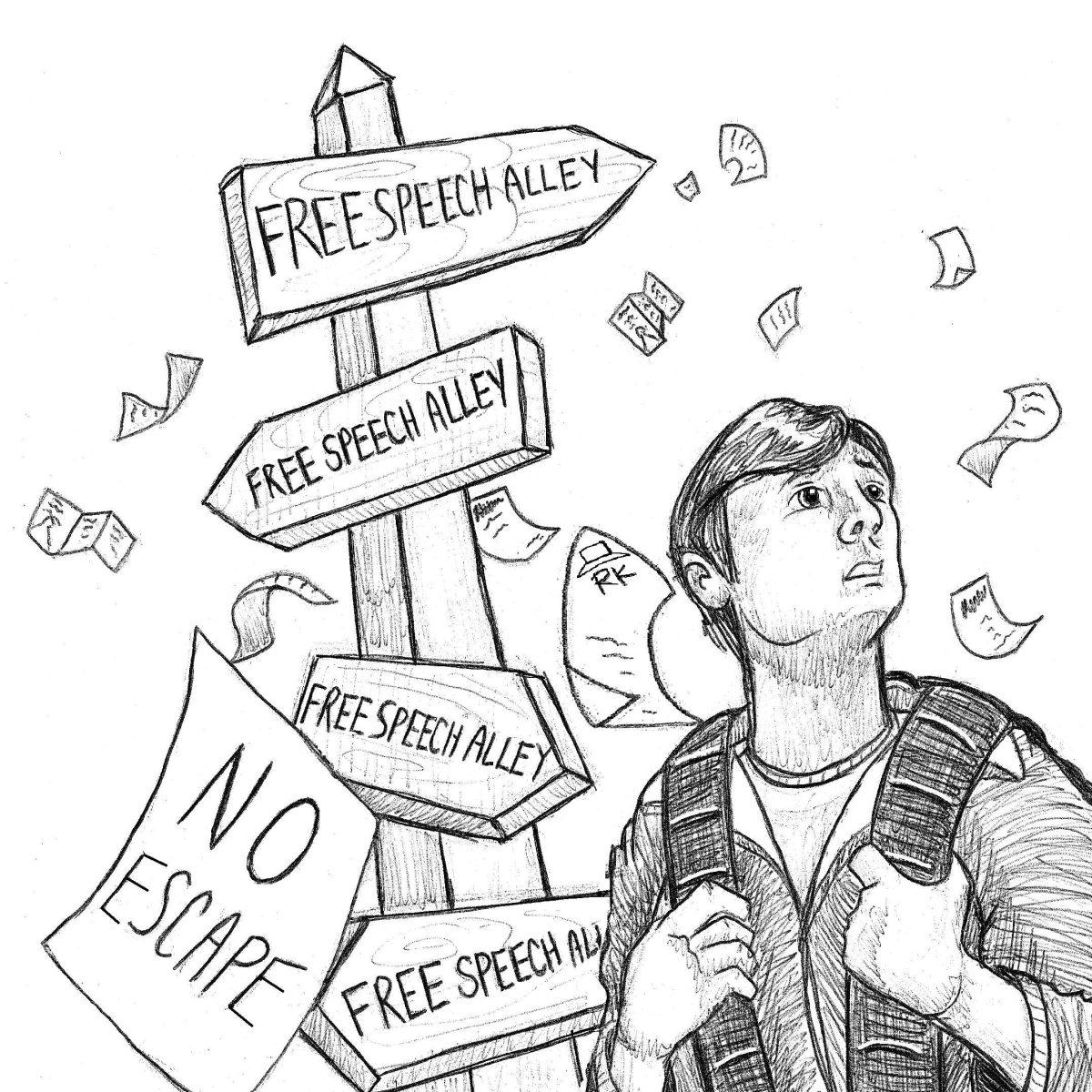It’s 11:20 a.m. You make your way across the quad, heading into the Himes Hall testing lab for a physics exam. You were up all night studying, and you plan on heading home to take a nap as soon as you’re done. But for now, you recite Newton’s laws to yourself.
An object in motion will stay in motion unless acted upon by an external force, an object at rest will stay at rest unless acted upon by an external force, an object—
“ALL BABIES WANT TO GET BORNED!”
There’s your external force: a member of the general public exercising his or her newfound right to free speech anywhere on LSU’s campus.
That’s right kids: It’s a free speech campus.
In October 2012, the Alliance Defending Freedom group filed a lawsuit against LSU. The University was found guilty of prohibiting students from passing out materials outside of the 1,000-foot area of campus known as Free Speech Plaza.
ADF legal counsel stated “by limiting the distribution of material and free speech to less than one percent of the campus, Louisiana State University is violating the constitutionally protected freedoms of students who should be free to express themselves on the sidewalks and open spaces at the university.”
This is the type of argument that causes me to incoherently rage into my pillow.
Most people think of freedom of speech as a constitutionally given right that allows them to say whatever they want, whenever they want, at whatever volume they want, without fear of any consequence because “Ahem, First Amendment.”
In the Bill of Rights, amendment one states that Congress “shall make no law abridging the freedom of speech, or of the press; or the right of the people peaceably to assemble, and to petition the Government for a redress of grievances.”
So, how did this get applied to a student on LSU’s campus?
In the time of the construction of the Constitution, James Madison proposed the Freedom of Speech Clause, which would protect the citizens of the country from their government trying to limit political speech and opinions.
That’s right — they wanted to make sure the citizens had the ability to protest their government, and had their opinions heard.
What they did not intend to protect was that student’s right to yell at you about a fetus that you may or may not have growing inside of you.
This is, of course, open to interpretation. In fact, this amendment has been interpreted several times throughout history to not cover certain types of speech. This includes defamation, threatening statements, obscenity and profanity.
I feel like the Founding Fathers would side with me if I were to tell them about my experience last fall, when a member of the Baton Rouge community came on campus and began harassing me and a friend for being feminists. She went so far as to angrily shake a finger at us and call us “baby murderers.”
While my friend knew that I had never murdered a baby in my life, the other 29,999 members of LSU’s community that could have heard that slander did not, and that’s defamation.
Gerald Ducote, a communication disorders sophomore, said, “Free Speech Alley was defined to an alley in my mind, because it was a sacred place for free speech.”
He had several opinions on the matter, and I must say I agree.
“People are assholes about opinions, no matter how much they don’t want to be. With a school of 30,000 people, all able to speak openly about their opinions anywhere on campus, things could get ugly,” he said.
Well, uglier.
Jana King is a 19-year-old women’s and gender studies major from Ponchatoula, La.
Head to Head: LSU should be allowed to set limitations on where students practice free speech
By Jana King
September 2, 2013
Free Speech






